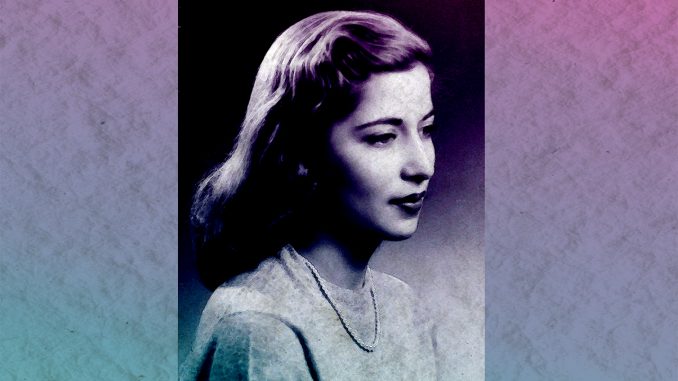
“Martin Ginsburg will be signing all of our checks someday. You’re a smart girl, you married a star.”
This quote, from the 2018 film “On the Basis of Sex,” both infuriated me and made me laugh.
Ruth Bader Ginsburg is infinitely more than someone’s wife, and her intelligence goes far beyond choosing the right partner. Yet, a comment like this painfully ignores who she is as a person and attempts to remind her of her stereotypical role in society: a caregiver.
“On the Basis of Sex,” which opened on Christmas Day, tells the story of Ginsburg’s fight for equal rights and her professional journey to becoming a United States Supreme Court associate justice.
Watching it was an emotional experience for me.
I was so moved by Ginsburg’s perseverance as she fought against a legal system that continually refused to value her voice, her credentials and her passion. There were many times during the film that I found myself feeling all the emotions Ginsburg went through — frustration, anger, sadness, joy, love, determination and fierceness.
Most people believe we have evolved past outdated, sexist beliefs. But there continues to be an abundance of derogatory comments reserved for women who dare to succeed in a “man’s world.”
In 2016, Laura Bates published a book called “Everyday Sexism,” which began as a project four years earlier on her website and Twitter page, where women of all ages have posted about their experiences with casual sexism. In one submission, a medical student recalled a professor telling her she’d cause her future husband serious headaches because she asks too many questions.
“My male boss finally agreed to give me a pay rise,” another woman wrote. “I replied, ‘I’m very grateful to you for sorting it out for me.’ He replied, ‘It’s a good job you’re married or I would ask you to show me how grateful.’”
We live in an era where it seems women are finally able to “have it all.”
Women are maintaining families and professional lives. Yet, women running for office will often be asked by well-meaning journalists how they are going to raise a family as a politician. These questions are posed only to women and with little regard for the fact that child-rearing is a partnership.
Though we won’t admit it, many of us are stuck in the mindset of eras long behind us. I saw that in “On the Basis of Sex.”
Ginsburg hid her second pregnancy with luck and timing. This was a year after she became the first woman professor at Rutgers Law School, where the dean told her quite matter-of-factly he was not obligated to pay her as much as her male counterparts.
The majority of U.S. citizens know Ginsburg as a Supreme Court justice who has made incredible strides in the movement for gender equality. But not many people may know Ginsburg has been involved in cases that benefited men in society, too. She was aware that discriminatory laws place people of all genders into a metaphorical prison.
I learned despite being at the top of her classes at both Harvard and Columbia universities, Ginsburg struggled to land a job at a law firm.
In the film, her husband asks how an interview went, and Ginsburg tried to contain her frustration.
“I wasn’t what they were looking for,” she said. “One said, ‘Women are too emotional to be lawyers.’ Another told me, ‘A woman graduating top of her class must be a real ballbuster.’”
It turns out Ginsburg really was quite the “ballbuster,” as she is revered as being a “great dissenter.” Her work for the gender movement has been compared to what Thurgood Marshall has done for the civil rights movement.
From the moment that our hero won her first case until I walked out of the theater, I could not stop crying.
I learned that Ginsburg became a Supreme Court justice in 1993 when I was only 1 year old. It made me wonder how different my whole life might be if it weren’t for her.
These stories are essential to our progression in society.
To make strides in gender equality, we need to know about resilient people like Malala Yousafzai, Assata Shakur, Angela Davis, Frida Kahlo, Tarana Burke, bell hooks, Chimamanda Ngozi Adichie, Emma Gonzáles, Serena Williams, Winona La Duke and so many more.
What would our world look like if gender equality was a priority? And what would it be like if it hadn’t been for Ginsburg?


Where would we be without Sandra Day-O’Conner is a better question. She was the first woman elected to the Supreme Court, by President Reagan. I have yet to figure out why she does not get the same amount of love and than RBG. Oh, its because she’s a footnote to most people in today’s society who never realized her importance in the first place.